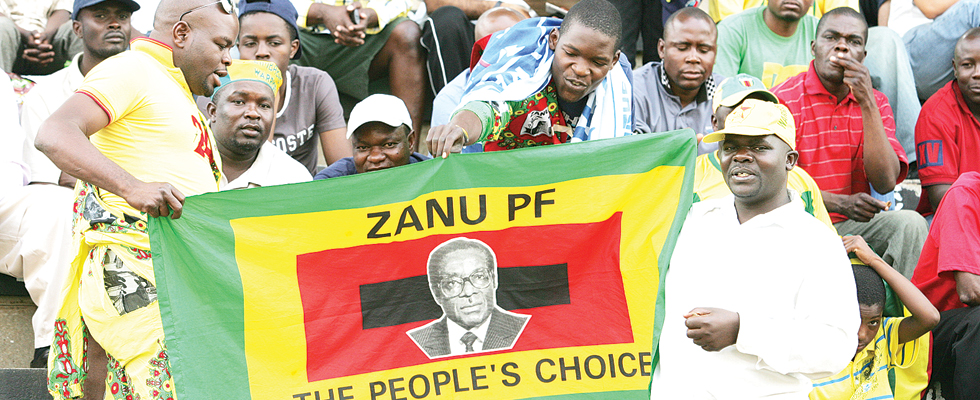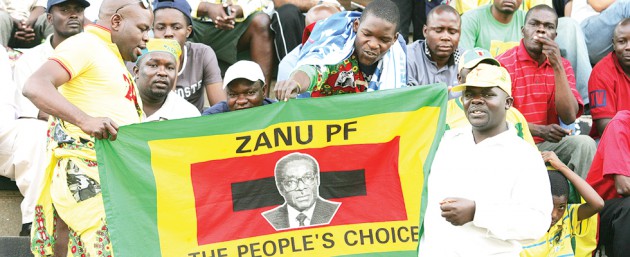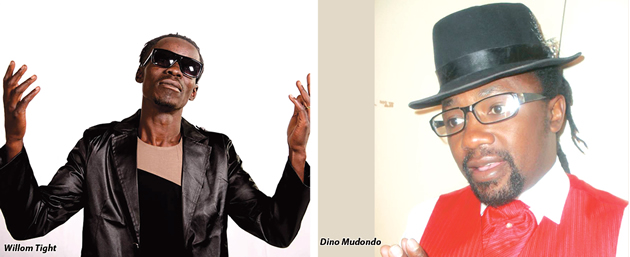Zanu-PF: Can the mischief of factionalism be cured?

 Reason Wafawarova on Thursday
Reason Wafawarova on Thursday
AMONG the most pertinent tenets of a revolution, none deserves to be more accurately developed than the inherent tendency for revolutionary unity.
Only the monolithic revolutionary unity through which our liberation war heroes won us the ultimate prize of independence can control the degeneracy now synonymous with Zanu-PF.
The voter for a popular party never really finds himself so much alarmed for its character and fate, except when the popular party is smitten by terminal disunity.
The instability, injustice, and confusion currently rampant in Zanu-PF have in truth been the mortal disease under which the party could realistically face its ultimate demise, and one only has to look at the trends that led to the demise of Unip and Kanu in Zambia and Kenya respectively, both liberation movements like our own Zanu-PF.
While these revolutionary parties were virtually made dysfunctional, the factionists that helped destroy them did not demise with the organisations.
Names like that of the late Levy Mwanawasa, Rupiya Banda, Michael Sata, and many others on the Zambian political landscape are all former luminaries of UNIP, while people like Mwai Kibaki, Raila Odinga, Uhuru Kenyatta and William Ruto all have Kanu roots.
This in itself proves to a great deal that factionists are driven by self-interests, not exactly by organisational considerations, and there is every reason to believe that there are factionists in Zanu-PF that are ready to sacrifice the very existence of the revolutionary party, if only for their narrow minded selfish ends.
As can clearly be seen, the infighting within Zanu-PF continues to be the favourite fruitful topic from which the revolution’s adversaries are deriving their most specious declamations.
One only needs to read the headlines from our combative private media.
“Angry Grace goes berserk!” or “Mujuru hits back!” are the kind of headers we have seen almost every day.
It is an unwarrantable partiality to roundly condemn the otherwise illustrious history of Zanu-PF in the last 34 years, especially given the fact that the party has effectively obviated the danger of imperial domination, as evidenced by the dramatic collapse of the MDC puppet project masterminded by Western puppeteers in the last decade.
Of course it is an undeniable fact that the Zanu-PF Government did an impressive job with expanding the education sector after independence, as well as urbanising the country and building health facilities, together with a fairly decent infrastructural development project involving road works and so on.
Indeed historical achievements do not make good the shortcomings of today.
Zanu-PF must be aware that complaints are everywhere heard from our citizens, as well as from external observers interested in our affairs — that our government is too capricious, that the public good has generally been disregarded in the conflicts of rival party factions focusing on power politics ahead of the welfare of the nation.
Our citizens are also aware that measures are too often decided, not according to the rules of justice and the rights of those affected, but by the superior force of interested and overbearing political heavyweights determined to manipulate their way up the ladder of power.
However anxiously or dramatically our politicians may wish that the complaints from our citizens had no foundation, the evidence of known facts will not allow us to deny that the grievances are not only legitimate, but also compellingly desperate.
A candid review of our state of affairs reveals a distressed people. While the illegal Western imposed economic sanctions have certainly been a major accounting factor for our recent misfortunes, surely sanctions alone are not the sole cause of our dire predicament, particularly if we are to account for the increasing distrust over public engagement by our mostly crooked politicians.
Unmeritorious leadership must chiefly, if not wholly account for the unsteadiness and injustice with which a factious spirit has smitten Zanu-PF’s power corridors.
We hear of warring factions, and by faction the understanding is that a number of party members, whether amounting to a majority or a minority, are united and actuated by some common impulse of passion, or interests. Such interests may as well be adversed to the rights of other party members, or even to the permanent and aggregate interests of the nation.
Is Zanu-PF looking for a cure for factionalism? It looks like both factions are fond of publicly denouncing the scourge of factionalism, and that alone may be an indicator that the party is not too proud of what its politicians are practicing in overdrive, much as the divisive tendencies cannot be stopped.
If Zanu-PF really wants to remedy the damaging reputation that comes with factional infighting then there are two remedies that easily come to mind at face value. The first one is to remove the causes of factionalism, and the second one is by controlling its effects.
One way of removing the causes of factionalism is to destroy the freedom of the factionists, banning all sorts of things and bludgeoning offenders into silence — essentially taking away the liberty that comes with the existence of factionalism. We have heard senior politicians blatantly intimidating junior rivals, and even terminating their party membership, and this we have seen from across the political divide. But does this really work?
Valid sounding reasons for expulsion can always be found, and most of the time they are quite impressive, albeit without merit.
The other way to remove the causes of factionalism is giving every party member the same opinions, the same passions, and the same interests, something similar to what some Zanu-PF politicians misrepresent as “gwara remusangano,” roughly meaning “party direction.” MDC-T even describes its leader as “the face of democracy”.
Obviously removing people’s freedoms or liberty is worse than the disease itself, and cannot be sustained. Liberty is to democracy what air is to fire, an ingredient without which fire will instantly expire.
It looks like some politicians believe in destroying liberty, because they are convinced that it nourishes factionalism, and as such imparts to fire its destructive tendencies. We have heard of how some Zanu-PF politicians have been disseminating the slogan “down with weevils!”
Those who believe the slogan is targeted at destroying their liberty and rights have in turn popularised the slogan “down with gamatox!” a reference to a deadly pesticide used by old time farmers to kill weevils.
While destroying people’s liberties is indisputably foolhardy, the second expedient is obviously impractical. People are always at liberty to exercise the fallibility of reason, and for as long as this continues to be the material reality of life, different opinions will be formed.
We all have this connection subsisting between reason and the love for oneself, and as such our opinions and our passions will always reciprocate to each other. Most of the time our passions will attach themselves to our opinions.
This is why it is hard to argue with someone driven by either faith based or political convictions. How do you prove that the bombing of Palestinian children by Israeli soldiers is a war crime, when the person to whom you wish to prove this is convinced that the Israeli soldiers are only fulfilling sacred utterances made by some Biblical prophets some 5000 years ago?
What we need to protect is not exactly the quest for uniformity of interests or passions. Rather the thing we must jealously protect is the diversity in our faculties, and this will lead to our diverse interests collectively benefiting the wholesome development of the country.
The latent causes of factionalism are sown in the nature of man, and this is precisely why democracy has become synonymous with multi-party politics.
The vote itself is an acknowledgement of diversity. If we all shared the same passions and opinions no vote would be necessary in any democracy.
Our politicians must be reminded that no man should ever be allowed to be a judge in their own case, because their interests would certainly bias their judgment, and inevitably corrupt their integrity.
The remedy that Zanu-PF should be seeking is in controlling the effects of factionalism, not exactly its causes.
When the revolution stands threatened by the ruinous effects of factionalism, it is this particular threat that needs to be controlled. When the nation’s stability stands threatened by the internecine acts of factionists, it is that threat that the revolutionary party must eradicate.
When factionalism spawns cronyism and corruption it is that undesirable effect that the party must control.
There is no viable political solution to corruption. Corrupt people do not belong to politics. They belong to jail.
Zanu-PF must be strengthening the arm of accountability institutions like ZACC, not taking away the teeth of the corruption watchdog, as seems to be the case at the moment.
The vote within Zanu-PF must always guide the party, not this deleterious doctrine that says the party leadership must guide the vote.
The personal interests of the party’s leadership must not undermine the vision of Zanu-PF, and factionists must not replace party policy with factional self-serving fallacies.
The party must forthwith abandon this queasy path where principle is sacrificed at the altar of expediency.
Theoretical politicians who have patronised the structures of Zanu-PF for some time now have erroneously supposed that it is acceptable to manipulate the vote, for as long as one can secure ratification of the same vote in a Wednesday Politburo meeting, perhaps because their faction commands the numbers needed to endorse their friskiness.
The mischief of factionalism itself is incurable, but it is possible to tame the effects thereof.
There must be common ground for rival factionists within Zanu-PF; otherwise a split becomes inevitable, as we have seen a few times with the ever-dismantling MDC.
When economic predators that have this nefarious belief that politics is the abuse of entrusted power for private gain gang up as a political faction, what you are looking at is not exactly a cause of factionalism, but a ruinous effect that needs to be obliterated. Corruption is neither a passion nor an opinion. It is a crime.
If indeed allegations of corruption as raised by First Lady Grace Mugabe against some Zanu-PF politicians are based on substance, and there is every reason to believe they are, it is important that the allegations are investigated by ZACC and by the police.
We cannot have a country where egregious acts of corruption are raised and resolved at political rallies or in newspapers.
It does not make sense to make insinuations that historical integrity can cancel today’s omissions, or that historical achievements can explain away alleged acts of crime.
We cannot play politics with crime and still make these ludicrous claims that a revolutionary party governs our country.
Zimbabwe we are one and together we will overcome. It is homeland or death!!
- REASON WAFAWAROVA is a political writer based in SYDNEY, Australia








Comments